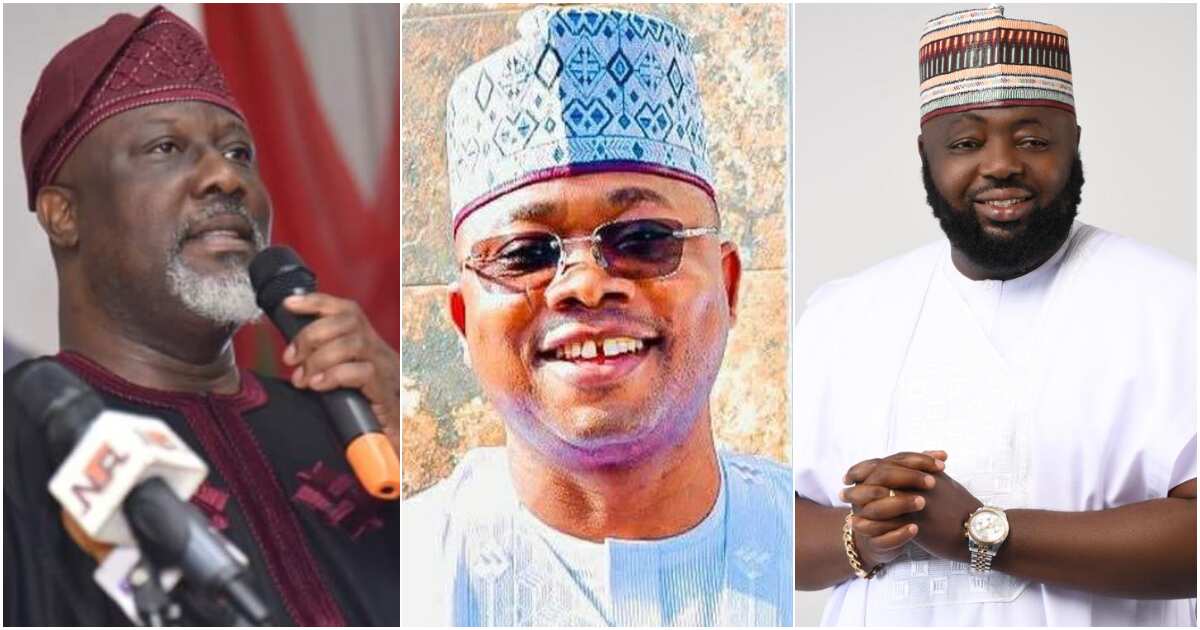Kogi State: Stop the violence
On November 11, 2023, the Kogi State governorship election will take place. Incumbent governor of the state, Yahaya Bello, is not contesting as he is serving his final second term in office. With the primaries held between March 27 and April 17, 2023, and the final list of candidates published on June 9, 2023, the […]

On November 11, 2023, the Kogi State governorship election will take place. Incumbent governor of the state, Yahaya Bello, is not contesting as he is serving his final second term in office. With the primaries held between March 27 and April 17, 2023, and the final list of candidates published on June 9, 2023, the campaign launch by political parties commenced on June 14, 2023. It is scheduled to end at midnight on November 9, 2023.
Already, the Independent National Electoral Commission (INEC) has cleared a total of 18 candidates who are jostling to take over from the incumbent governor on January 26, 2024, the day his tenure ends.
Some of the cleared candidates as published by the INEC include the All Progressives Congress (APC) candidate (Ododo Ahmed Usman); Senator Dino Melaye of Peoples Democratic Party (PDP); Muritala Yakubu Ajaka of Social Democratic Party (SDP); Leke Abejide of African Democratic Congress (ADC); Olayinka Braimoh – Action Alliance and Okeme Adejoh of the Labour Party.
Ahead of the November election, the recurring decimal of violence has reared its head, raising apprehensions as the political parties kick off their campaigns. This is worrying because election violence is becoming part of the politics of Kogi State. Its pre-election environment has generally been characterised by inciting and fierce rhetoric, threats of violence and actual incidents of violence.
Unfortunately, these violent attacks are nothing new. Nextier Violent Conflict Database, in its publication titled “Nigeria’s 2023 State elections: Mirroring hotspot States,” listed Kogi as propensity for electoral violence based on historical evidence and existing security situation.
During the general elections, Nextier reported violent activities by thugs in Anyigba and Dekina areas resulting in two deaths and 11 abductions. It was such that INEC threatened cancellation of results.
In the run-up to the 2019 November governorship election, the Centre for Democracy and Development (CDD) reported a total of 10 deaths, 79 cases of violence and election malpractices across the 21 local government areas (LGAs) of the state.
To buttress the figures, the cold-blooded burning alive of Mrs Salome Abu, a Peoples Democratic Party (PDP) woman leader during the 2019 governorship election, is still seething. Last week, an attack in Ejule led to the death of some persons. Also early this month, property estimated at hundreds of millions of naira was razed down at Ejule. It belonged to Bala Kabiru (Okwo), a former associate of the governor, now in opposition.
And on June 2, 2023 along the Abuja-Lokoja highway, there was exchange of gunfire by security operatives attached to the convoys of Governor Bello and Alhaji Murtala Ajaka, the SDP candidate in the state. A few days later, a radio station, Radio Kogi Ochaja, was looted and destroyed by gun-wielding hoodlums and others armed with dangerous weapons, after beating up the staff and security guards on duty.
Speaking of the convoy attack, Governor Bello warned on June 3, at the unveiling of his party’s deputy governorship candidate: “Let it be the first and last an antelope will cross the lion’s way. Next time, there will be no warning.”
We condemn the blame game that ensued between the governor and the candidate of the SDP, as that did not in any way help the situation. Daily Trust believes that this year’s election should be held without the usual cycle of violence. We, therefore, call on all political stakeholders to realise the imperative of peaceful elections. Towards this, they should de-escalate tension and rhetorics and work to rein in their thugs and other supporters.
They must watch their choice of words and refrain from statements that further inflame emotional, partisan or ethnic passions. This could inadvertently trigger violence or reprisals, further heightening tensions in the polity.
In this vein, we call on the National Peace Committee led by General Abdulsalami Abubakar (rtd) to effectively engage all the actors towards a de-escalation. It should also organise the signing of Peace Accord which would publicly commit all political stakeholders to walk the talk for peace in line with the envisaged accord.
Moreover, the federal government should not be an uninterested bystander. They already have agents deployed on ground who are empowered by the constitution and other extant laws to maintain law and order.
Apart from ensuring a level-playing field, the operational directives should be clear to the nation’s defence and other security agencies on exhibiting proven impartiality and unalloyed demonstration of neutrality.
They must enforce the provisions of the Electoral Act, especially concerning electoral offences and the related violent disruptions of the process. They should ensure that all perpetrators of violence and others who inflame rhetorics are called to answer.
Particularly, police personnel on ground should perform their duties without fear or favour, so as to nip in the bud any threat of violence. Their deployment should guarantee security and make the environment safe for electioneering campaigns. They and other operatives should show effectiveness and display neutrality and the highest level of professionalism.
They should face their responsibilities and refuse to act in concert with partisan political interests that are intent on subverting the electoral process.
Therefore, all stakeholders and their supporters should sheath their swords. They must realise that every eligible indigene/resident of Kogi State has a fundamental right to contest for the office of governor, or any office whatsoever.
